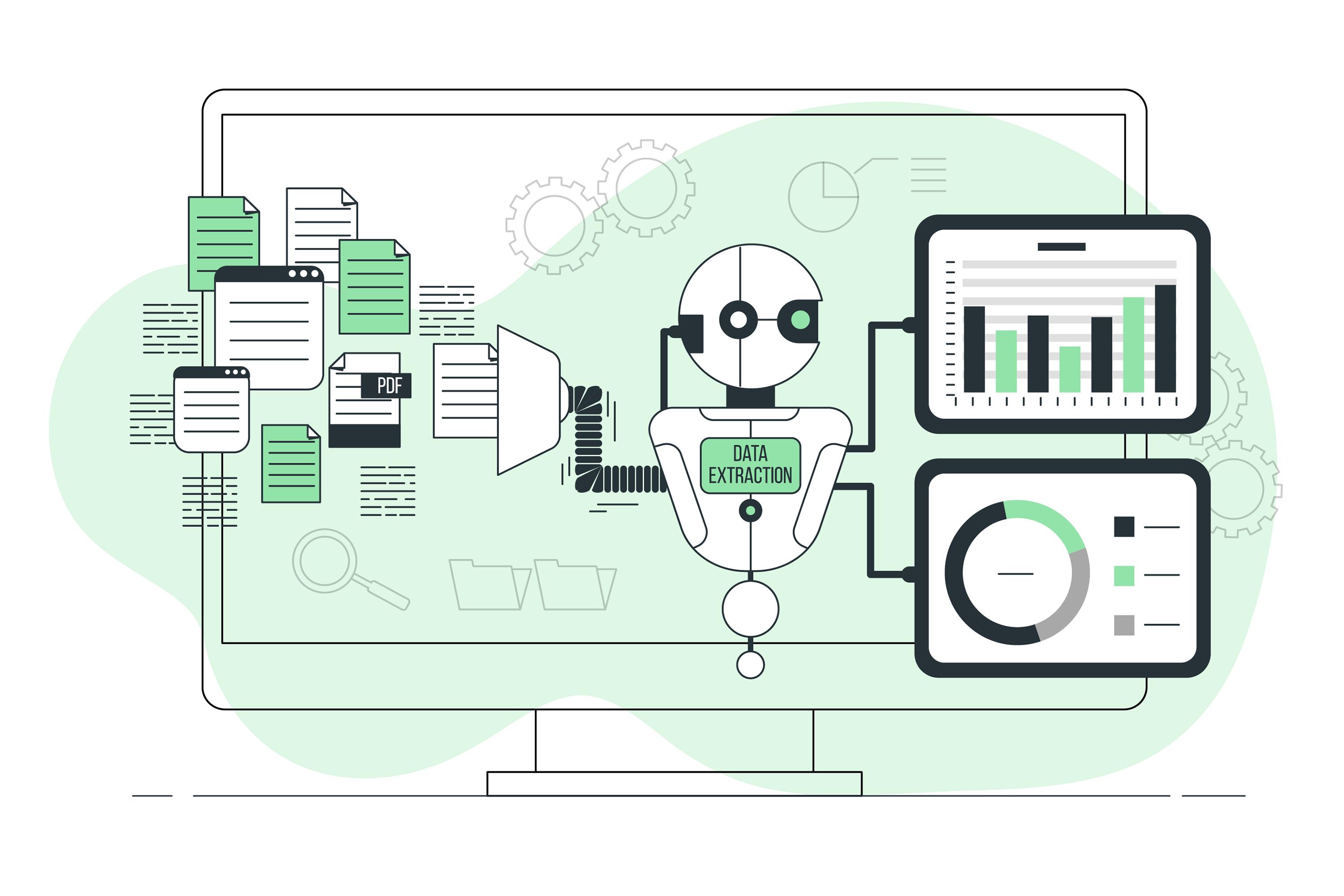Automated Data Processing (ADP) in Healthcare

Automated Data Processing (ADP) in healthcare refers to the use of advanced technologies and intelligent algorithms to streamline and optimize data-related tasks. This encompasses various processes, including data collection, storage, analysis, and reporting. By automating these tasks, healthcare organizations can improve efficiency, accuracy, and decision-making.
What Is Automated Data Processing?
Automated Data Processing (ADP) involves the use of technology to automatically collect, process, and manage data with minimal human intervention. In healthcare, this means leveraging tools like Artificial Intelligence (AI), Machine Learning (ML), and Robotic Process Automation (RPA) to handle tasks such as patient data entry, claims processing, and medical record management. By automating these processes, healthcare providers can reduce errors, save time, and focus more on patient care.
Applications of Automated Data Processing in Healthcare
1. Electronic Health Records (EHRs) Management
-
Centralized Patient Data: Automated systems consolidate patient information from various sources into a single, accessible record.
-
Real-Time Updates: Healthcare providers can update patient records instantly, ensuring all team members have the most current information.
-
Automated Data Entry: Natural Language Processing (NLP) technologies can extract relevant information from clinical notes and populate structured fields automatically.
-
Interoperability: Automated systems facilitate secure sharing of patient data between different healthcare providers and institutions.
-
Alerts and Reminders: EHR systems can automatically generate alerts for follow-up appointments, medication renewals, or potential drug interactions.
2. Medical Imaging Analysis
-
Diagnostic Assistance: AI-powered systems can analyze medical images to detect abnormalities, potentially identifying issues that human eyes might miss.
-
Workflow Optimization: Automated systems can prioritize and route imaging studies based on urgency and complexity, improving radiologists’ efficiency.
-
Quantitative Analysis: Automated tools can perform precise measurements and comparisons across multiple images or time points.
-
3D Reconstruction: Advanced processing techniques can create detailed 3D models from 2D images, aiding in surgical planning and patient education.
-
Image Enhancement: Automated systems can improve image quality, making it easier for healthcare professionals to interpret results accurately.
3. Patient Data Analytics
-
Predictive Analytics: Machine learning models can analyze patient data to predict potential health risks or disease progression, enabling early intervention.
-
Population Health Management: Automated systems can identify trends and patterns across patient populations, helping to target public health initiatives more effectively.
-
Treatment Optimization: By analyzing outcomes data, automated systems can suggest the most effective treatments for specific patient profiles.
-
Resource Allocation: Predictive models can forecast patient admissions and resource needs, helping hospitals optimize staffing and equipment allocation.
-
Personalized Medicine: Advanced analytics can process genetic and clinical data to recommend tailored treatment plans for individual patients.
4. Robotic Process Automation (RPA) in Administrative Tasks
-
Insurance Claims Processing: RPA bots can automate the entire workflow of insurance claims, from data entry to submission, delivering maximum accuracy and speed performance.
-
Medical Record Management: RPA applications can take over repetitive tasks in managing medical records, reducing administrative burden and improving data accuracy.
-
Appointment Scheduling: RPA systems streamline appointment bookings by automatically scheduling, rescheduling, or canceling appointments based on patient preferences and availability.
Benefits of Automated Data Processing in Healthcare
-
Improved Efficiency and Productivity: Automated processes eliminate manual errors, reduce time-consuming tasks, and enable staff to focus on higher-value activities, such as patient care and research.
-
Enhanced Data Accuracy and Quality: Automation minimizes the risks associated with manual data entry and manipulation, ensuring data accuracy and integrity.
-
Accelerated Decision-Making: With real-time access to accurate and reliable data, healthcare professionals can make quicker and more informed decisions.
-
Cost Savings: Automated data processing reduces operational costs by eliminating the need for extensive manual labor, minimizing errors, and optimizing resource allocation.
-
Enhanced Compliance and Security: Automation helps maintain consistent adherence to regulations like HIPAA, enhancing compliance and minimizing risks of violations.
External Resources for Further Reading
Conclusion
By integrating automated data processing into healthcare systems, organizations can achieve significant improvements in efficiency, accuracy, and patient care quality. Embracing these technologies is essential for modern healthcare providers aiming to meet the evolving demands of the industry.
Articles
Build your awareness and get inspired with our researched articles on how you can strengthen your well-being
Contact Us
-
InspireWebApp
-
support@inspirewebapp.com
-
7600 Georgia Avenue Northwest, Washington, DC 20012, USA
Streamline Your Workflow with Inspire — Subscribe Now!
Join hundreds of healthcare professionals who trust Inspire to manage their documentation faster and more accurately.
Key Benefits
- ✅ Instant access to all tools
- ✅ Secure & HIPAA-compliant
- ✅ Designed for health Care providers
Popular Articles

Healthcare AI Tools for Small Hospitals: Smarter Care, Lower Costs, and Better Outcomes
By Zukane Mbuih

Top AI Tools in Healthcare (2025): Transforming Clinics Across the USA
By Zukane Mbuih

Top AI Software for Clinics in 2025: Why Inspire Web APP Is Leading the Future
By Zukane Mbuih
13 Steps of Revenue Cycle Management: A Complete Guide for Healthcare
By Zukane Mbuih